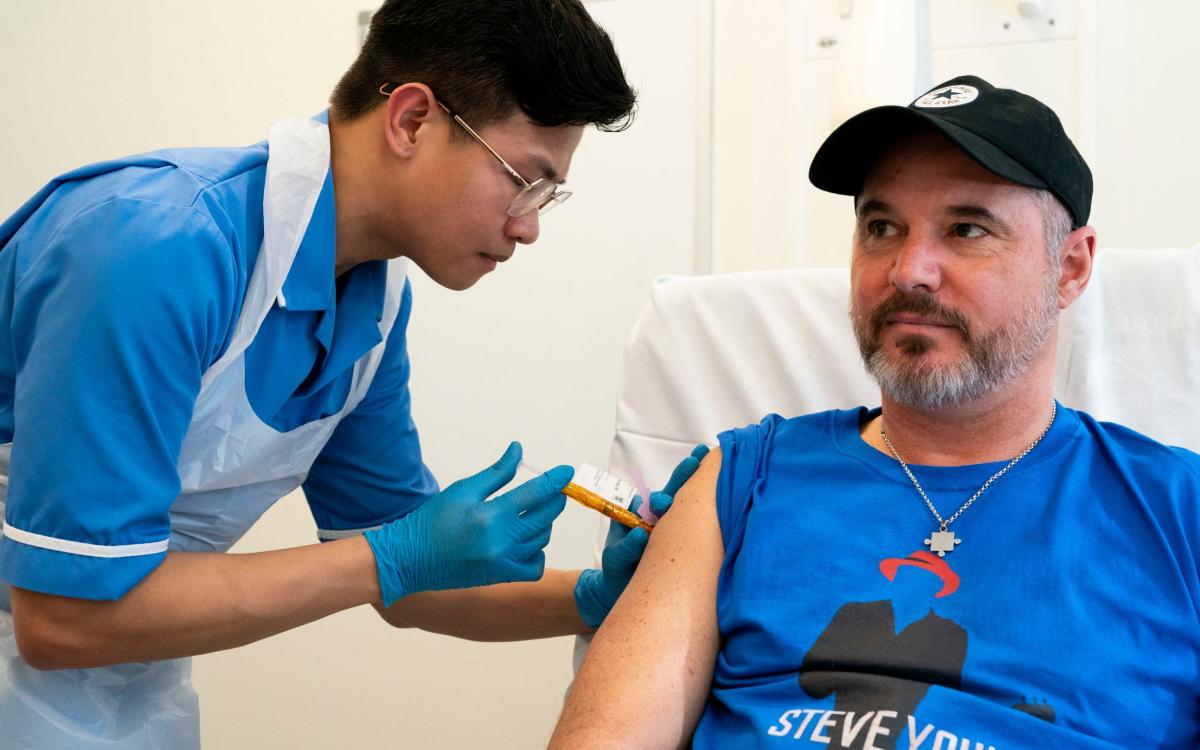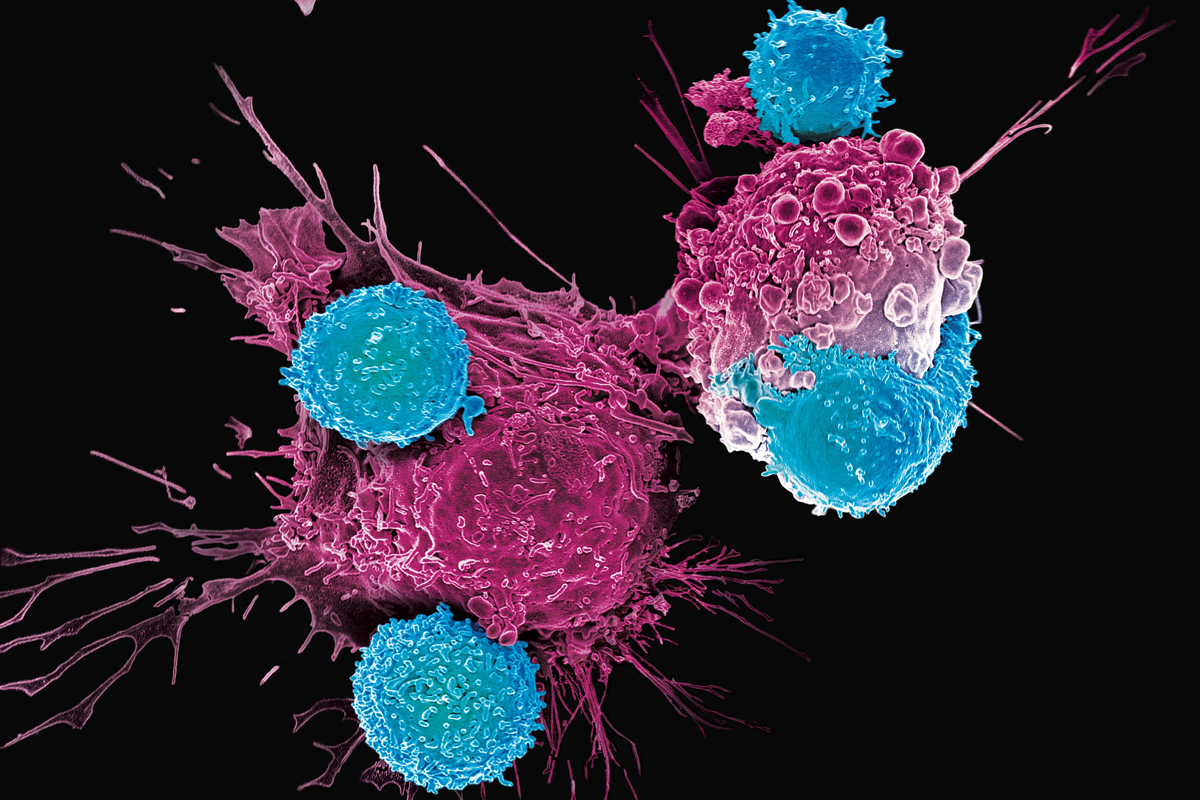-
 News
A real breakthrough in melanoma treatment: a personalized mRNA vaccine trial
News
A real breakthrough in melanoma treatment: a personalized mRNA vaccine trial
-
 Medical articles
CAR T therapy: helps treat cancer when other methods fail
Medical articles
CAR T therapy: helps treat cancer when other methods fail
-
 Medical articles
Cancer incidence is steadily increasing: disappointing WHO forecast for 2050
Medical articles
Cancer incidence is steadily increasing: disappointing WHO forecast for 2050
-
 Medical articles
Stem cells bring hope to millions of people suffering from hearing loss
Medical articles
Stem cells bring hope to millions of people suffering from hearing loss
-
 Medical articles
TOP 10 clinics for oncology treatment 2023
Medical articles
TOP 10 clinics for oncology treatment 2023
All news
Pancreatic cancer treatment
- Every year half a million new cases.
- The average age is 73 years.
- Men get sick more often than women.
Modern diagnostics: sonography, endosonography, ERCP, PET, scintigraphy with octreotide.
Innovative treatment: radiochemotherapy, stereotactic radiosurgery, surgical removal, a new generation of drugs.
MedTour patients recommend clinics for the treatment of pancreatic cancer:
Doctors for the treatment of pancreatic cancer
Patient reviews
My mom had a mastectomy at the Samsung medical center. We were very worried, but everything went well. MedTour helped us get to the clinic and hired a transfer. The clinic is of a high class, my mother was pleased with the treatment, the conditions of the ward and the service.
I had prostate cancer and I decided to have a surgerv in Medipol clinic. I have heard about it from my friends to did the same surgery here. I was amazed about modern technology in this hospital! Doctors and nurses are super polite and educated. Everyone speaks english and is ready to help in every situation. My turkish surgeon was the best doctor, which I have ever met in my life. Results of the surgery are estounishing. I feel myself great and I am very thankful to MedTour for organizing my medical trip!
Frequently Asked Questions
This is a malignant transformation of pancreatic cells with the formation of a tumor.
Risk factors are:
- smoking,
- excessive alcohol consumption,
- improper nutrition,
- concomitant diseases (diabetes, pancreatitis).
Patients complain about:
- weight loss – in 90% of all cases,
- complain and hurt in the abdomen or back – 80%,
- jaundice – 70%,
- loss of appetite and nausea – 40-50%,
- emerging diabetes mellitus – 15%,
- vomiting – 15%.
Yes, you can. People gradually begin to feel weak, lose weight, and eventually die.
Without proper treatment people live an average of 4.6 months after being diagnosed with it.
- laboratory tests,
- ultrasound examination (sonography),
- endoscopic ultrasound examination (endosonography),
- endoscopic image of the duct and biliary tract using X-rays (ERCP),
- MRI, CT, X-ray,
- tissue puncture,
- laparoscopy,
- positron emission tomography (PET),
- scintigraphy with octreotide.
- surgery,
- radiochemotherapy,
- stereotactic irradiation,
- medicines.
- Oncologist consultation and complex diagnostic: from $800 (Turkey), from $800 (Israel), from $800 (Germany).
- Treatment costs: from $10,000 (Turkey), from $15,000 (Israel), from $30,000 (Germany).
Do you want to know the exact cost and get a free consultation? Leave a request and the Coordinating Doctor will contact you!
International standards for the diagnosis and treatment of pancreatic cancer
Pancreatic cancer is often found incidentally during an examination (abdominal ultrasound). If suspected, the doctor prescribes further diagnostics. Find out if it is really a tumor, where exactly in the pancreas is located and how far the disease has gone.
Mandatory examinations are:
- laboratory tests,
- ultrasound examination (sonography),
- endoscopic ultrasound examination (endosonography).
Due to the position of the carcinoma in the pancreas, many imaging procedures do not provide detailed images. Therefore, they are often combined with:
- endoscopic imaging of the pancreatic duct and biliary tract using X-rays (ERCP),
- MRI, CT, X-ray,
- tissue puncture (biopsy),
- laparoscopy,
- positron emission tomography (PET),
- scintigraphy with octreotide.
Laboratory tests
Blood tests provide information about the general condition of a person, the functions of individual organs and the presence of tumor markers. They are produced by tumor cells of pancreatic carcinoma.
Sonography
With the help of ultrasound, the doctor checks the spread of the tumor in the surrounding tissues and daughter tumors (metastases) in distant organs. Disadvantages:
- Very small tumors (less than 1 cm in diameter) are not visible.
- Due to its location in the back of the abdomen, the pancreas is not always clearly visible from the outside.
Endosonography
Due to the close proximity to the tumor, the quality and information content of ultrasound images is much higher than in sonography. Endosonography can detect very small tumors (less than 5 millimeters in diameter). Using this method, the tumor can be punctured under ultrasound guidance.
Octreotide scintigraphy
This research method is based on the ability of tumor cells to bind octreoid on their surface. This substance is an active protein molecule. The patient is given an injection with this drug and waited for 24 hours. The accumulation of antibodies in the area of the tumor is detected externally using special devices.
Treatment
Treatment includes different methods:
- surgical removal of the tumor,
- radiochemotherapy,
- stereotactic irradiation,
- drug therapy,
- relief therapy.
Surgery option
Based on the localization of the neoplasm, the surgeon removes the entire pancreas or only part of the organ. Adjacent organs (biliary tract, duodenum, spleen) are removed when metastases are found in them. This increases the chances of recovery.
Stereotactic radiosurgery
With this method of treatment, tumor tissues are targeted with high individual doses. Patients also receive chemotherapy with active substances before radiation therapy. In some patients, chemotherapy continues after radiation therapy until the disease progresses.
The effectiveness of therapy: more than 80% of patients live for more than a year and in half of them the tumor does not progress.
Drug therapy
Suitable for patients:
- with local cancer,
- with inoperable cancer,
- with disseminated cancer.
A combination of the chemotherapeutic agent gemcitabine and the tyrosine kinase inhibitor erlotinib is used. These substances block the growth of tumor cells.
Published:
Updated:


Information on this webpage verified by the medical expert





Рудченко Олексадр Украіна. Велике спасибі за професіоналізм та чуйність до всього колективу відділення, особливо лікарю Марісу Межецкісу. Лікування відбувалося у січні 2023 року.